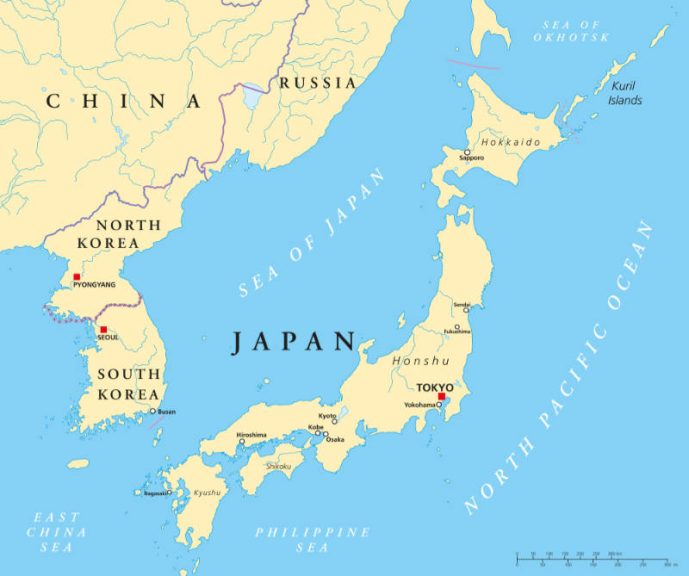Russia is open for constructive cooperation and broader business contacts with Japan, according to Nikolay Nozdrev, the Russian Ambassador in Tokyo, who stated, “We are open to constructive and mutually respectful cooperation with Japan, our neighbour with whom we are linked not just by economic potential, but also by the people’s mutual interest in closer ties.”
He said that Moscow is focused on “preserving and multiplying the existing formats of cooperation, including business contacts, cultural initiatives, and practical interactions.”
Japan has joined Western sanctions against Russia yet remains partially dependent upon Russian gas, which is piped in to Japan from fields in Sakhalin. It is also a co-owner of the large Sakhalin Island LNG project.

According to statistics published by the Japanese Ministry of Finance, in fiscal year 2024 (April 1, 2024 to March 31, 2025), exports from Japan to Russia decreased by 1.2%, while imports from Russia decreased by 12.3%. In absolute terms, Japanese exports to Russia amounted to ₽186 billion (US$2.7 billion), while imports from Russia reached ₽465.3 billion (US$5.92 billion).
In addition to joining Western sanctions, Japan began imposing anti-Russian sanctions in March 2014 in connection with the reunification of Crimea with the Russian Federation and tightened them in February 2022. These apply to Russian government officials, employees and companies in key economic sectors (finance, metallurgy, energy, mining, engineering, defense), media representatives, scientists, and artists, while the list of goods and technologies prohibited for export exceeded 800 items.
However, in 2024, trade in products not subject to sanctions actually increased: exports to Russia of plastics grew by 91.4% in 2024, iron and steel products by 521.4%, motorcycles by 8.1%, and auto parts by 5.9%.
At the same time, exports to Russia of honey products decreased by 64.7%, paper and paper products by 60.8%, rubber products by 25.6%, computer parts by 19.0%, televisions by 35.3%, and passenger cars by 5.8%.
In the 2024 fiscal year, imports from Russia of fruit increased by 467%, vegetables by 21%, fish by 2%, and insulated wires and cables by 13.6%. At the same time, imports of LNG decreased by 9.4%, grain by 35.9%, medical products by 87.4%, iron and steel by 55.5%, non-ferrous metal ores by 70.4%, non-ferrous metals by 34.4%, and furniture by 21%.
Japanese cars and auto components remain an important part of bilateral trade, although sanctions have diminished sales of new vehicles, with Russia turning instead to Chinese manufacturers.
The overall trade picture is complex, with Japan politically influenced by the United States while ideally needing cheap Russian energy supplies to maintain its global manufacturing competitiveness. Japan’s 2025 GDP growth rate is 0.5%, with the economy continuing to cool down, indicating some rapprochement from Japan towards Russia will eventually become a necessity.
Further Reading
Russia–Japan Total Trade Down, But Russian Exports to Japan Up

 Русский
Русский













